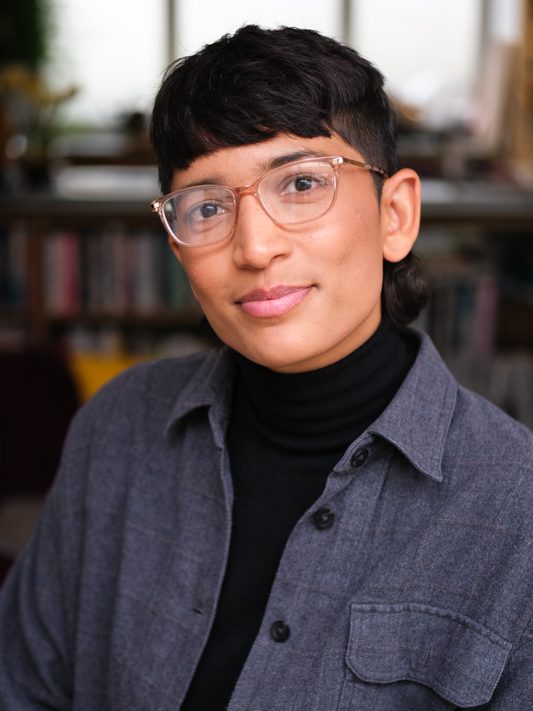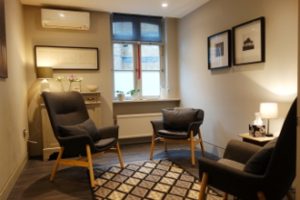Embodied Psychotherapy
with Jumanah Younis
(BA, MBACP)

Welcome, I hope my website helps you decide if I may be the right therapist for you. People usually access therapy because something is no longer working or does not feel right. You may be experiencing feelings of anxiety or depression, a sense of stuckness or low self-esteem.
In therapy, we explore the challenges you are facing through a collaborative conversation. I offer a warm, inquisitive approach, which may prompt you to examine pre-existing narratives, allowing new paths and possibilities to emerge.
About me
I began to train as a therapist after five years working in domestic and sexual violence support services. Seeing service users struggle to make long-term change with only practical support, I became curious about the role of the psychological in the path to recovery from trauma.
Humanistic therapy puts the emphasis on an individual’s innate capacity to move towards what is nourishing for them. It also considers how our particular subjective position and early relationships affect our way of responding to trauma.
This approach resonated with my values, so I started therapy training in Humanistic Approaches to Psychotherapy, first at the Metanoia Institute and later at Brighton University.
During my training I also worked as a counsellor at the LGBTQ+ mental health charity MindOut for over two years, where I supported clients with diverse gender, sexual, and relationship experiences, particuarly queer people of colour.
I’m interested in non-normative relationship styles such as poly and in exploring sex and sexuality, as well as thinking about the intersections between race, class, sexuality and disability.
Issues I have worked with include, among others:
- anxiety
- loneliness/isolation
- sexual and domestic abuse
- depression
- gender identity
- eating disorders
- religious trauma
- suicidal ideation
- racial trauma
- sex and sexuality, including questioning sexuality, kink, erectile dysfunction
My approach
Anti-oppressive practice
As a humanistic therapist, I try to understand your unique lens on the world and how that has been shaped by the culture in your family and community. How you grew up may have been impacted by discrimination based on race, class, gender, sexuality, disability and other factors. I adopt an anti-oppressive framework which means that I consider how these factors may affect us inside and outside of the therapy room.
Understanding your frame
Childhood is an important time for our development. Given that we are reliant on others for care, we can’t make sense of or control the world alone. We do what we can to survive, and may create stories about how things work to make sense of events that have happened. At times, we use the same survival tactics and apply the logic of these stories in adult life without considering whether or not they still hold true or work for us.
Understanding your story
In therapy, we can explore the expectations and narratives you may hold about yourself, others and the world through our relationship as client and therapist. Since we experience the world through our bodies, I may encourage attention to your mind and body together as a way to gain other insights into how you are feeling, and I may reflect and share my own felt sense in my body too.
Room for change
Through this collaborative and embodied approach, your awareness of how you see yourself and others can grow. This may lead to acceptance of some things you are unable or unwilling to change, and change of things that you can or want to. In any case, charting the territory together may allow new ways of being to emerge. You may feel like experimenting with doing things differently in therapy itself, which in turn may make change feel possible in other relationships too.
Qualifications
I have a postgraduate diploma with distinction in Humanistic Counselling and Psychotherapy from the University of Brighton. I also have a certificate in Humanistic Approaches to Counselling from The Metanoia Institute, London and I am a registered member of the British Association for Counselling and Psychotherapy (BACP).

Barnsbury Therapy Rooms
Get in touch
To find out more, please get in touch by email at: [email protected]. I try to respond within 48 hours if I can. I offer a free, 15-minute introductory phone call; please send me your telephone number and availability to arrange this. I work in person in North London and online.
A full consultation has a fee of £70. In the consultation we will discuss the issues bringing you to therapy, session times and fees. Ongoing therapy sessions are 50 minutes and held weekly, my rate is £70. I do offer a sliding scale of concession rates, please enquire.
Please note, from January 2026 my fee will increase to £75 per session.